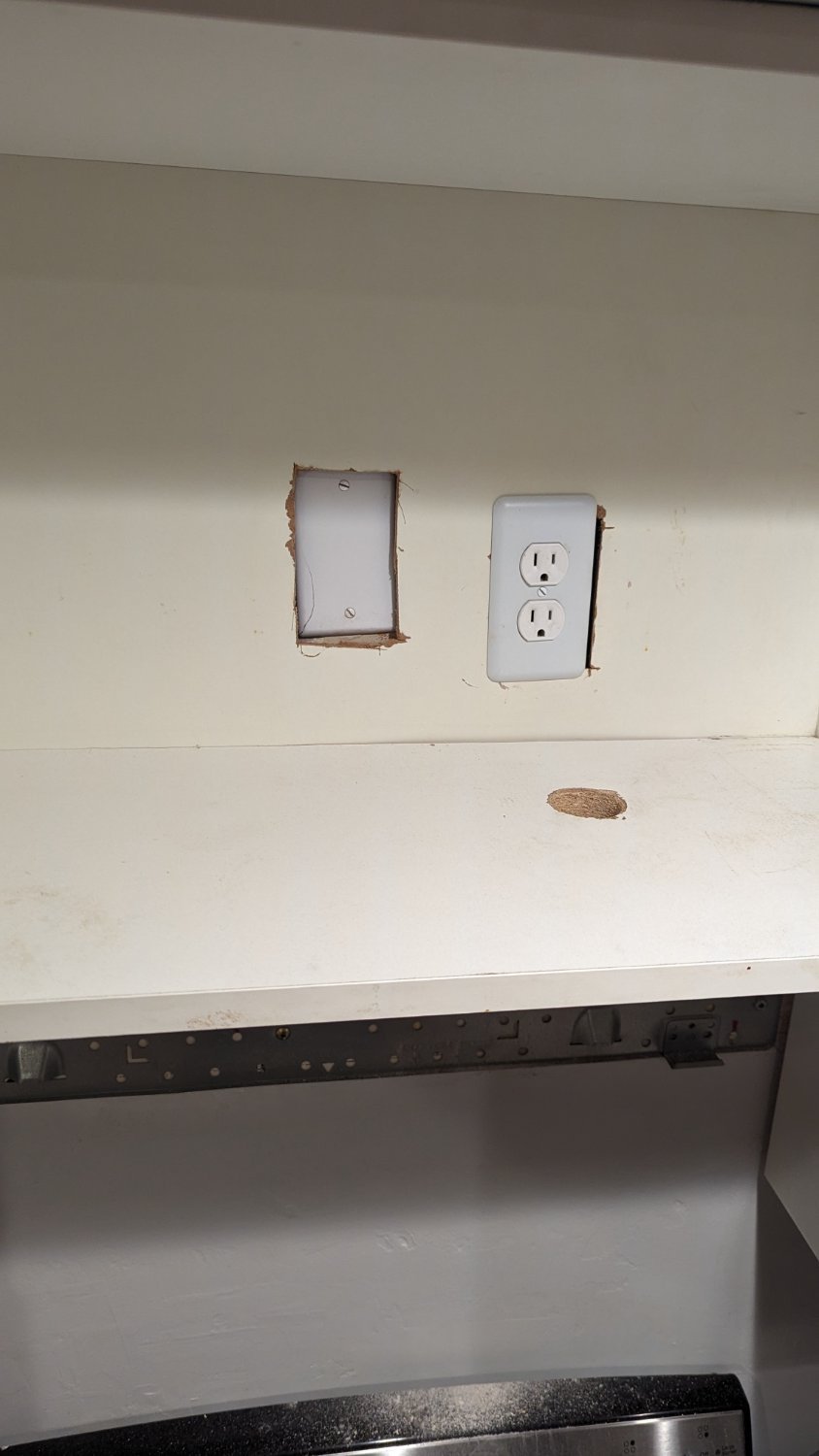I’m cleaning this cabinet above the range/micro and noticed this mark on the back. I mostly keep cooking oils, vinegars, etc in here. Does this look serious?
Update: well it ain’t pretty, but it shouldn’t burn the house down. For anyone concerned, my electrician approves. Thank you all for your help today.


So the the third photo is with the melamine cabinet removed? If so, you are so lucky to have found it now. That old outlet looks like it was shorting. Major fire hazard there. What does the back of the cabinet look like?
The old outlet should never have been buried like that. I’m not an electrician but my understanding is that the outlet should have been removed, the wires properly terminated (with caps or the like), the box covered with a plate cover, then the back of the cabinet should have had a hole cut into it so access to the cover was still possible with the cabinet in place.
Plus: what’s the deal with the blue box? Was it never properly attached to the wall? Did the original installer mis-cut the cabinet hole and instead improperly add a new box?
I am lucky. I had no idea this was going on back here. Here’s the back of the scorched cabinet.
And here is my new cap job.
I’m going to cover it with a plate and cut a hole in the melamine just as you suggested.
The blue box is one of those kind that is supposed to latch into the drywall, but the melamine is cut too tight for that to have ever worked so it’s just busted out when I pulled on cabinet.
Great! I’d also explore properly attaching the blue box to the drywall, then using a box extender to cover the space taken up by the melamine. This way the outlet and cover can be securely attached.
Thanks for the tips. That’s just what I’ll do. Do you think it’s important to mount it to the stud or will an old work box do?
I see mounting to a stud as something useful if the outlet is expected to get a lot of use. The “wings” of old work box might possibly dig into the drywall and become loose. In this case the use level will be low, right? Besides, attaching to a stud is work intensive, and I believe that using an old work box like this is up to code. I’ve used them a number of times.
EDIT: Also about the caps… I try to observe a “code plus” approach and wrap caps with friction tape (NOT the plastic electrician’s tape). That stuff will provide a little more protection for decades.
Oh interesting. I thought electrical tape was the only thing. I also like to do “code plus.” I’ll get some friction tape.
Yeah once the micro is plugged in this never gets touched. And it’s on its own circuit.